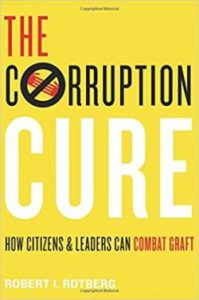
Transparency International’s 2018 CPI
Failure to curb corruption is contributing to a worldwide crisis of democracy, according to corruption watchdog Transparency International’s 2018 Corruption Perceptions Index (CPI), released on Tuesday.
The CPI claims a direct link between corruption and the level of democracy in a country, wherein full democracies averaged 75 on the corruption index and autocratic regimes just 30. While the reasons for this crisis are complex, the CPI analysis highlights that:
- when corruption seeps into the democratic system, corrupt leaders may seek to prevent democratic checks and balances so that they can continue to remain in power unpunished
- countries which recently transitioned to democratic governance often did not develop effective anti-corruption and integrity mechanisms, and now find themselves stuck in a cycle of high corruption and low performing democratic institutions
- some populist leaders who have come to power by capitalising on public disgust with corruption, ironically, now seek to undermine anti-corruption mechanisms and democratic institutions.
 “With many democratic institutions under threat across the globe – often by leaders with authoritarian or populist tendencies – we need to do more to strengthen checks and balances and protect citizens’ rights,” said Patricia Moreira, TI Managing Director.
“With many democratic institutions under threat across the globe – often by leaders with authoritarian or populist tendencies – we need to do more to strengthen checks and balances and protect citizens’ rights,” said Patricia Moreira, TI Managing Director.
While “high corruption rates can contribute to increased support for populist candidates,” 40 percent of populist leaders worldwide are indicted on corruption charges.
As global norms against bribery spread and anti-bribery laws become increasingly enforced, companies seeking to integrate into global value chains must implement best practices for mitigating corruption, writes Lola Adekanye, a Program Officer for Africa at the Center for International Private Enterprise:
Therefore, as part of CIPE’s Africa regional strategy to empower businesses to combat corruption, CIPE is equipping local companies in over 12 countries across Africa with compliance tools and resources to mitigate the risk of corruption in their operations and supporting efforts to mainstream ethics and integrity in the business environments in these countries. Through CIPE’s support SMEs are able to understand the cost of corruption to their businesses and implement mitigation protocols making them less risky investment partners for international investors.
“Corruption chips away at democracy to produce a vicious cycle, where corruption undermines democratic institutions and, in turn, weak institutions are less able to control corruption,” TI’s Moreira explained.
The two lowest ranking regions were Sub-Saharan Africa, with an average score of 32, and Eastern Europe and Central Asia, with an average of 35. Countries that have declined in score in the latter region include Azerbaijan, scoring 25, and Russia at 28.
“A general lack of political will, weak institutions, and few political rights create an environment where corruption flourishes with little opposition,” the report adds.







